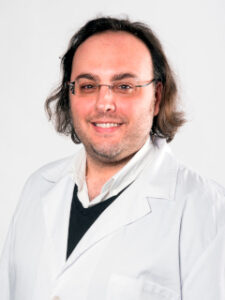Reproductive Medicine
Objectives
– To create comprehensive reference map at single-cell resolution of the human uterus
– To study the origin of fibroids at the single-cell level
– To study the origin of late gestational pathology focuses on decidualization deficiency
– To establish the maternal-fetal communication mechanisms before embryo implantation
– To provide early diagnosis and treatment of endometriosis and endometrial cancer
– To study the molecular mediators in hormone-dependent oncogenesis in endometrium and ovary
– To establish a success strategy in the implementation of physical activity to reduce the risk of chronic disease in women
Research Lines
– Study of endometrial receptivity and cell map of the human uterus. Previous research in our laboratory using microarray technology has established a transcriptomic signature of human endometrial receptivity
– Maternal-fetal communication
– Role of the endometrial microbiome in reproduction
– Early diagnosis of preeclampsia and other complications of pregnancy
– Study at the single-cell level of the origin of uterine fibroids
– Early diagnosis and treatment of endometriosis and endometrial cancer
– Molecular factors involved in the initiation and progression of hormone-dependent tumours in the endometrium and ovary
– Implementation of physical activity as a strategy to improve health indicators in women
Clinical Groups
Research Group on Women Health (Dr. Antonio Cano Sánchez)
Research Group on Therapies Against Endometriosis and Endometrial Cancer (Dr. Raúl Gómez Gallego)
Experimental Groups
Research Group on Maternal Fetal Communication (Dr. Felip Vilella Mitjana)
Research Group on Reproductive Medicine (Dr. Carlos Simón Vallés)
Clinical Services Associated to the Program
Department of Gynaecology and Obstetrics
Department of Microbiology
Coordinators
Dr. Carlos Simón Vallés

Dr. Felip Vilella Mitjana
